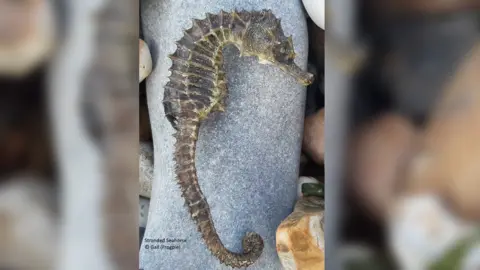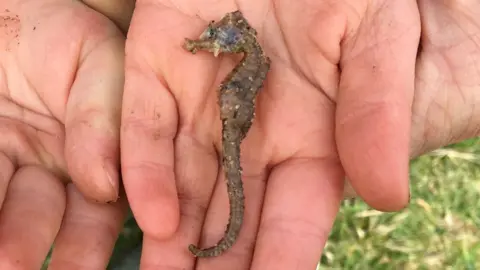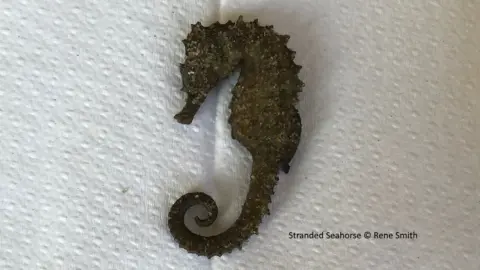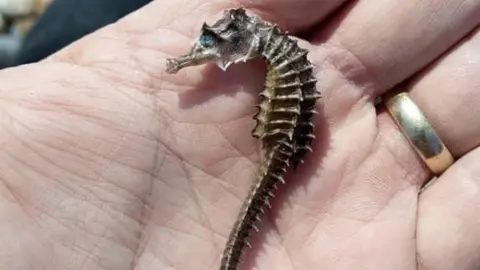'Unusual' number of dead seahorses washing up in Dorset
 Gail Frogpie
Gail FrogpieAn unusually high number of dead seahorses have been washing up on beaches along the Dorset coast, according to a wildlife trust.
Four of the creatures, including both spiny and short-snouted seahorses, have been discovered over a couple of weeks.
Dorset Wildlife Trust (DWT) said the first one was spotted on Studland beach on the 29 March.
The others were seen at Wobarrow Bay, near Kimmeridge, Greenhill Beach, Weymouth, and Chesil Beach at Portland.
 Sarah Hodgson
Sarah HodgsonThe finds were recorded and reported to DWT by members of the public.
Seahorses used to be a common sight in the shallow seagrass meadows off Dorset, where both species have been found to breed.
In 2008, about 40 spiny seahorses were recorded in Studland Bay by divers from the Seahorse Trust.
 Rene Smith
Rene SmithHowever, only two live ones have been spotted in similar counts since 2015 and last summer Seahorse Trust divers only managed to find a dead one.
Julie Hatcher, DWT's marine awareness officer, said the seahorses that washed up were small individuals, which had been born last year and would have matured as adults this summer.
She said that while there was no "obvious reason for the deaths" they indicated "that Dorset now had a good population of seahorses along the coast".
"It may be that they struggled to find enough food early in the year or were caught out by some rough sea conditions and accidentally washed up on the beach," she added.
 Craig Pinder
Craig Pinder"We are keen to hear of other records that might give us a clue as to the cause.
"To have so many seahorses washing up in Dorset in such a short time is unheard of."
Both spiny and short-snouted seahorses, the UK's two native species, have been protected under the Wildlife and Countryside Act 1981 since 2008, which prevents them being killed, injured or taken.
